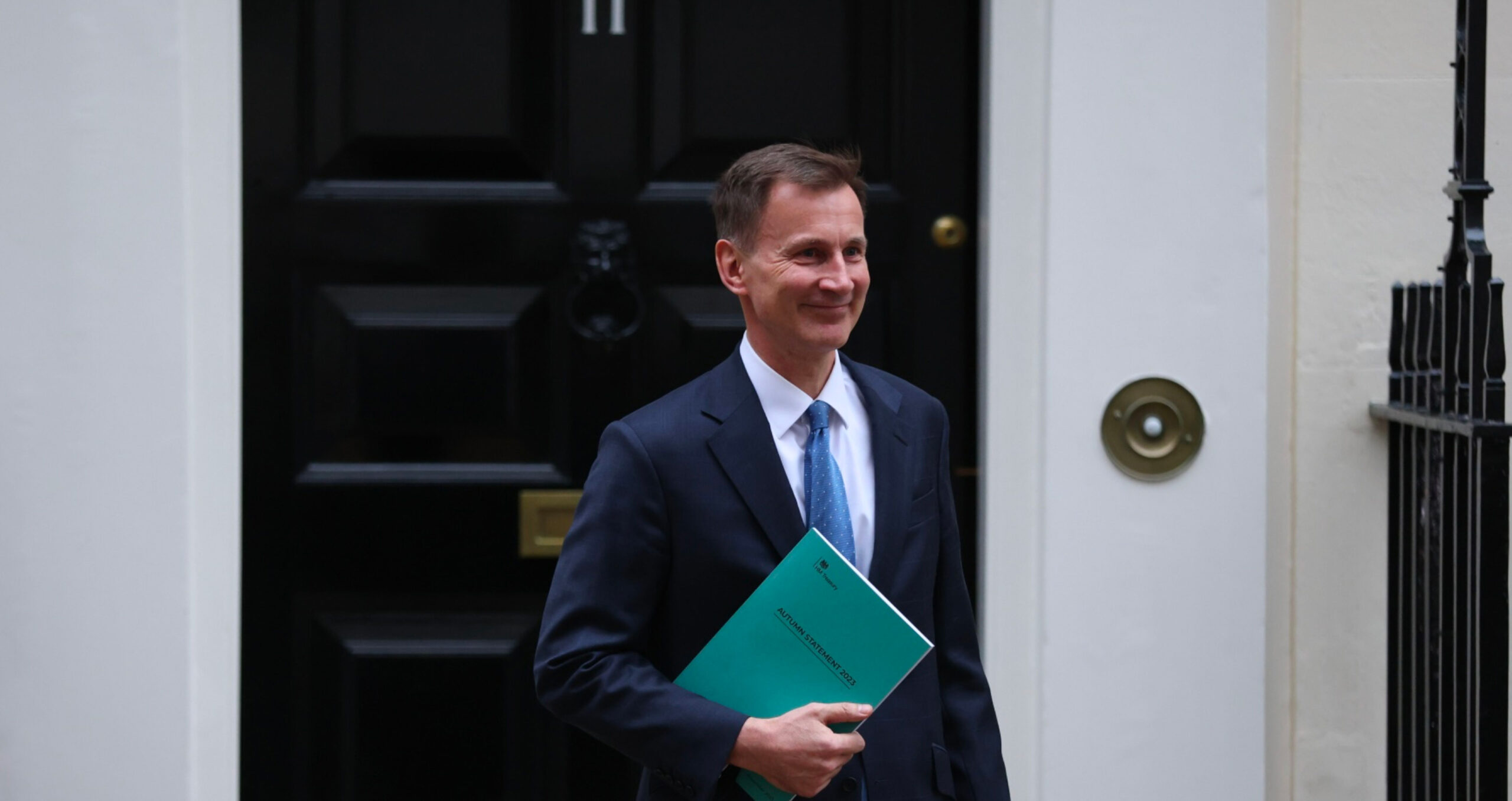
Autumn Statement: UK government makes green spending pledges and outlines electricity grid reforms

Chancellor of the Exchequer Jeremy Hunt unveiled a series of spending pledges targeting green energy in his Autumn Statement, though some say these lack sufficient ambition
In his November 22 Autumn Statement, UK chancellor Jeremy Hunt has outlined spending commitments to help key industries in the transition to clean energy, as well as planning reforms designed to spur private investment.
As part of the country’s push towards net zero, £4.5bn will go towards the “strategic manufacturing sectors” of automotive, aerospace, life sciences and clean energy, for five years from 2025-26. More than £2bn of this will go towards helping the automotive sector develop zero emissions vehicles, batteries and the supply chain, while £975mn is earmarked to support the aerospace sector’s development of energy efficient technology and £960mn for green energy to boost clean energy manufacturing.
The planned Green Industries Growth Accelerator will support investment in carbon capture utilisation and storage, offshore wind, hydrogen, electricity networks, and nuclear energy – areas in which the government says the UK “can gain the clearest strengths”.
However, some believe it is not going far enough.
Esin Serin, policy fellow at the LSE’s Grantham Research Institute on Climate Change and the Environment, said in a statement that the government’s backing of green industries alongside its other proposals “is important, but falls short on ambition and scale if the UK is to ensure it isn’t just deploying but also maximising economic and social benefits from green technologies”.
Electricity grid reforms
The government has also promised to eliminate barriers to infrastructure investment and accelerate connection to the electricity grid, making available over 100 gigawatts of capacity. These reforms would lower overall connection delays from five years to a maximum delay of six months, it said.
“Reforms which facilitate grid expansion and connections are a very positive step, given that grid infrastructure underpins a very significant proportion of the technologies being taken forward to achieve net zero, including the production of green hydrogen and electrification in sectors such as heating and transport,” said Michael Burns, global co-head of energy at law firm Ashurst.
It is hoped that solar and offshore wind developers will benefit from plans for permanent full expensing, a tax cut on businesses that allows companies to write off the cost of eligible plant and machinery investment.
Solar and offshore industries will also receive an investment exemption from the electricity generator levy, a 45 per cent charge on exceptional receipts generated from producing wholesale electricity. (Exceptional receipts are defined as wholesale electricity sold at an average price in excess of £75/MWh over an accounting period).
The government also said it will soon publish its response to a consultation earlier this year on the introduction of a carbon border adjustment mechanism. The EU’s CBAM came into effect at the start of October.
In a statement in a response to Hunt’s speech, James Alexander, chief executive of the UK Sustainable Investment and Finance Association, welcomed the plans for accelerated electricity grid connectivity and planning reforms for renewable energy initiatives, suggesting that these measures could help to unlock private investment into cleaner energy. However, he cautioned: “It remains to be seen how effective these will be in practice.”
Alexander accused the UK government of lacking the ambition to lead the global climate transition shown by other countries. “The size and scale of commitments made today still fall short of a sufficiently comprehensive response to the US Inflation Reduction Act, the EU’s Green Deal Industrial Plan, and similar initiatives in other jurisdictions,” he said. “The chancellor didn’t go far enough.”
Similar Articles

In Brief: EU parliament rubber-stamps CSDDD; US imposes strict rules on carbon pollution from power plants

UK Climate Change Act remains legally sound 15 years on, experts say


